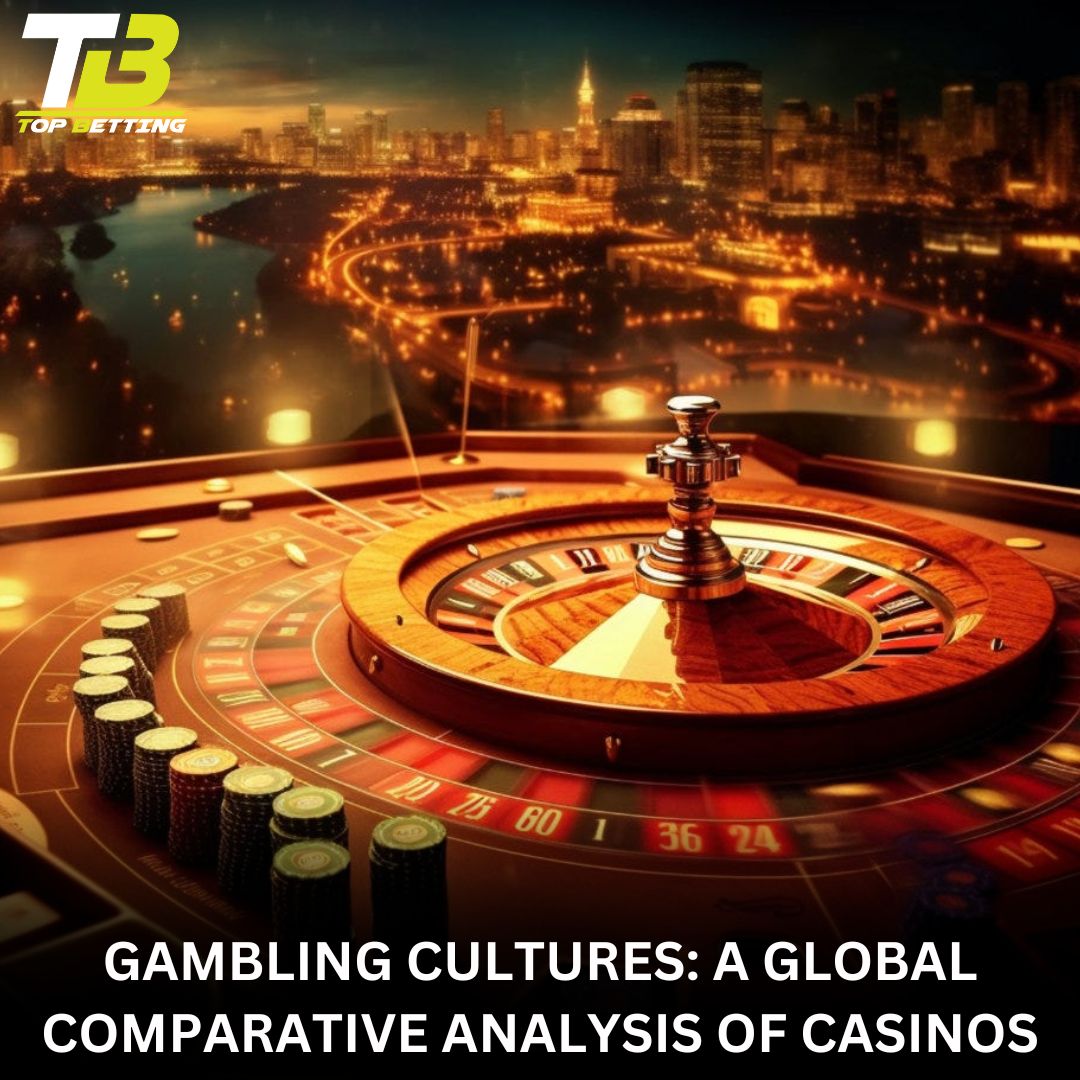
Gambling Cultures: A Global Comparative Analysis of Casinos
Gambling has been an integral part of human civilization since ancient times, with various forms of wagering and games of chance emerging across the globe. As the gambling industry has evolved, casinos have become central to the gambling scene, transforming the way people engage with this popular activity. This article delves into the intricate tapestry of gambling cultures around the world, examining the historical, cultural, and regulatory factors that have shaped the global casino industry.
A Timeless Tradition
Gambling’s origins can be traced back to ancient civilizations, where games of chance and skill were played for entertainment, spiritual, and social purposes. Evidence of early gambling activities dates back to around 3000 BCE in ancient China, where a game called “The Game of Tiles” was played using tiles. Similarly, ancient Egypt, Greece, and Rome witnessed various forms of gambling, including betting on animal fights, chariot races, and other events.
The modern concept of casinos emerged in Europe during the 17th and 18th centuries. The first licensed casino, the Ridotto, opened in Venice in 1638, offering a range of games, including card games, dice, and lotteries. The French Revolution subsequently led to the spread of casinos across Europe, with the iconic Casino de Monte-Carlo opening in 1865.
The Evolution of Gambling from Offline to Online
The United States witnessed the rise of casinos in the early 20th century, with Las Vegas becoming a major hub for gambling and entertainment. However, the evolution of gambling has continued, with the emergence of online casinos. These virtual platforms initially started with the simple offering of card games like Spider Solitaire, but have since evolved to include real-money casinos where players can engage in a wide range of games, win rewards, and enjoy an immersive gambling experience.
As global trade, travel, and communication increased, gambling cultures spread worldwide. European colonization introduced Western-style gambling to Africa, Asia, and the Americas, where indigenous forms of gambling already existed. Today, gambling is a global activity, with various cultures adapting and blending traditional and modern forms of gambling.
Regional Gambling Landscapes: Diverse Perspectives The global gambling landscape reflects diverse cultural attitudes, regulatory frameworks, and economic influences. Let’s explore the present state of gambling across different regions:
The Gambling Epicenter
Asia has become a prominent gambling hub, with Macau surpassing Las Vegas as the world’s largest casino market. The region’s cultural affinity for gambling, coupled with economic growth and tourism, has fueled the expansion of casinos in countries like Singapore, South Korea, and the Philippines.
Tradition and Complexity

Europe is home to some of the world’s oldest and most prestigious casinos, such as the Casino de Monte-Carlo and the Casinò di Venezia. The region’s complex regulatory landscape and varying cultural attitudes towards gambling have shaped the industry’s development.
The Gambling Powerhouse
The United States has a long and complex history with gambling, from the early days of the Wild West to the modern casino resorts of Las Vegas and Atlantic City. Native American casinos have also significantly impacted the industry’s growth.
Emerging Opportunities
South America’s casino industry is rapidly growing, driven by countries like Argentina, Brazil, and Chile. The region’s cultural passion for gambling and the increasing popularity of online gaming have contributed to this expansion.
Untapped Potential
Africa’s casino industry is relatively underdeveloped, but countries like South Africa and Morocco have established themselves as regional hubs. The growth of online gambling and the increasing popularity of sports betting have opened up new opportunities for the continent’s gambling sector.
Shaping the Global Landscape
Cultural attitudes towards gambling vary widely across the globe, shaped by historical, social, and religious contexts. Some cultures embrace gambling as a recreational activity, while others view it with suspicion or outright prohibition.
The Role of Religion and Tradition
Religion and tradition play a significant role in shaping cultural attitudes towards gambling. For instance, in Macau, gambling is a deeply ingrained cultural tradition, while many Muslim-majority countries prohibit gambling, considering it haram (forbidden) under Islamic law. Similarly, in some Buddhist cultures, gambling is seen as a harmful activity that can lead to negative consequences, while in Hinduism, gambling is associated with the god of wealth, Lakshmi, and is sometimes viewed as a way to seek prosperity.
Gambling and Inequality
Socioeconomic factors also shape cultural perspectives on gambling. Economic inequality can influence how gambling is perceived, with individuals in regions marked by high levels of inequality often viewing it as a potential means of escaping poverty or attaining financial stability. Social status also affects attitudes towards gambling, as it may be linked to notions of wealth and prestige in certain cultures, while in others, it might be stigmatized as a pursuit associated with lower socioeconomic classes. Additionally, higher levels of education tend to correlate with more negative perceptions of gambling.
Navigating the Global Gambling Landscape
Gambling laws vary globally, reflecting diverse cultural, religious, and political beliefs. Some countries have embraced gambling, while others prohibit it entirely. Macau, Las Vegas, and the UK have legalized and regulated gambling, generating significant revenue for their respective governments.
Restrictive Environments
Most Muslim-majority countries, such as Saudi Arabia and Iran, prohibit gambling entirely. Countries like India and Japan have legalized certain forms of gambling, like lotteries and horse racing, while restricting others.
The Impact of Legal Frameworks on Gambling Cultures

Legal frameworks significantly shape gambling cultures by influencing accessibility, social acceptance, and revenue generation. Where gambling is legalized, it becomes more accessible and socially accepted, while also generating significant tax revenue for governments. Conversely, restrictive laws can drive gambling underground and lead to the social stigma surrounding the activity.
Casino Design and Atmosphere: Reflecting Cultural Diversity
Casinos’ architectural styles and design elements vary greatly, reflecting local cultures and design trends. For instance, The Cosmopolitan in Las Vegas showcases Art Deco elements, while The Venetian in Macau features a modern minimalist design. The Ritz-Carlton in Monte Carlo exudes luxury boutique elegance, and The Bellagio in Las Vegas boasts themed entertainment grandeur.
In Macau and Singapore, Asian-inspired motifs like dragons and pagodas are prominent. European elegance, characterized by ornate details and grand foyers, is evident in Monte Carlo and Vienna. Tribal patterns and natural materials are thoughtfully integrated into native American casinos, while futuristic and high-tech elements define modern Asian casinos.
Balancing Accessibility and Harm Reduction
The availability of gambling options, particularly widely accessible electronic gambling machines (EGMs), in convenience locations has sparked debates in various countries. Some studies have suggested replacing convenience opportunities with destination gambling as a possible harm-minimization strategy, while others have highlighted the importance of understanding the cultural context in which these gambling spaces are embedded.
Researchers have distinguished between special convenience gambling locations, such as clubs and arcades, and everyday convenience locations like petrol stations and supermarket foyers. The cultural acceptance and perception of these different gambling spaces can vary significantly, influencing the overall gambling experience and the potential for harm.
Conclusion
The global casino industry has been shaped by a multitude of factors, including history, society, culture, religion, and legal frameworks. This comparative study has highlighted the diverse ways in which different cultures and regions approach and engage with gambling.
As the gambling industry continues to evolve, it is crucial to deeply understand the cultural, social, and economic implications of gambling. Policymakers and industry stakeholders must consider the nuanced interplay between gambling venues, game characteristics, and the cultural context to ensure that casinos and other gambling opportunities serve the communities they operate in effectively.

By exploring the rich tapestry of global gambling cultures, we can gain valuable insights into the complex and ever-changing landscape of the casino industry, ultimately working towards a more responsible and sustainable gambling ecosystem worldwide.











